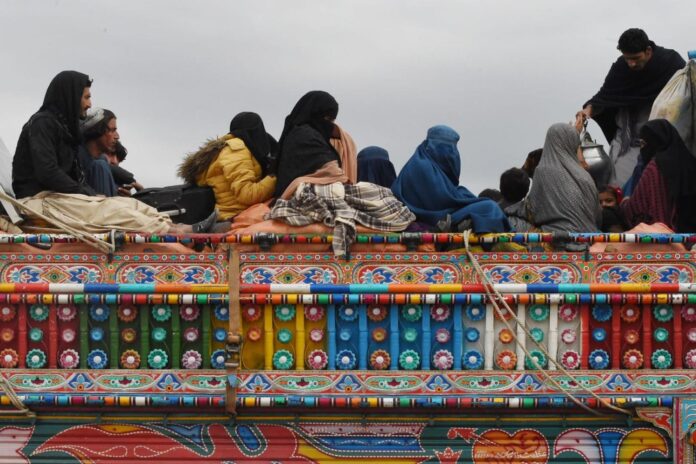Only a rights-based, coordinated, and long-term approach can break the cycle of displacement and offer Afghan refugees a dignified future.
Afghan refugees in Pakistan are part of one of the world’s longest-standing and most complex displacement crises. While the largest influx began during the Soviet invasion of Afghanistan in 1979, subsequent waves have continued in response to the civil war of the 1990s, the rise and fall of the Taliban regime, the US-led intervention post-2001, and most recently, the Taliban’s return to power in 2021. Over the decades, millions of Afghans have sought refuge in Pakistan—some temporarily, others for generations. Despite their long-standing presence, Afghan refugees have remained on the margins, caught in cycles of conflict, displacement, and political uncertainty, with little progress toward durable solutions.
Neither the forced deportation of Afghan refugees from Pakistan nor the repeated requests by the international community and the Afghan government for temporary extensions of their stay offer a sustainable solution to the ongoing refugee crisis. These short-sighted approaches fail to address the root causes of displacement or provide long-term pathways to stability, leaving Afghan refugees in a constant state of legal and social limbo.
Pakistan has systematically politicized the presence of Afghan refugees, using their status as leverage in regional diplomacy rather than prioritizing their humanitarian needs. By issuing threats of mass deportations, tightening restrictions, and denying rights, Islamabad has adopted a pressure-centric policy that obscures its own responsibility in prolonging refugee vulnerability.
Meanwhile, the Afghan government has often sidestepped its obligations. Despite repeated calls for an extension of refugees’ stay in Pakistan, it has failed to create robust reintegration policies for returnees. Basic services such as shelter, resettlement support, and access to livelihoods remain either severely limited or entirely absent. As a result, many repatriated Afghans are returned not to safety, but to insecurity and economic hardship.
The international community, too, has fallen short. Despite rhetorical commitments to refugee rights, global actors have provided insufficient funding and lack the political will needed for sustainable repatriation or third-country resettlement. This neglect, combined with Pakistan’s internal policies and Afghanistan’s administrative failures, has rendered Afghan refugees pawns in a geopolitical deadlock.
Refugees are not merely displaced individuals: they are families, students, professionals, and citizens of the region, now living under constant threat and without a viable future.
A lasting solution demands a coordinated and committed approach. Pakistan must move beyond using refugees as diplomatic leverage and instead adopt a rights-based framework that ensures fair treatment, legal protections, and access to basic services. The Afghan government must take real ownership of reintegration processes by establishing viable support systems for returnees, including education, housing, healthcare, and job creation. Then comes the role of the international community. Beyond temporary aid, global actors must commit to sustained funding and political support for both reintegration and, where necessary, third-country resettlement. Collaborative frameworks involving all stakeholders, host and origin countries, international organizations, and civil society are essential to address the structural dimensions of this crisis.
Afghan refugees deserve more than token gestures and temporary reprieves. They deserve dignity, stability, and the opportunity to rebuild their lives. Without decisive, inclusive, and forward-looking strategies, this crisis will continue to fester, fueling resentment, radicalization, and instability across the region.




